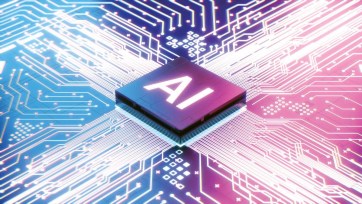
With the onset of a new era of Artificial Intelligence (AI), President Irfaan Ali has stressed the importance of Guyana constructing robust structures to counterbalance the impact of AI on governance.
Speaking during the Annual Police Officers’ Conference on Thursday, the Guyanese Leader underscored that the conversation on AI must involve all three branches of Government: Executive, Legislative and Judiciary.
He cautioned that Guyana would be trapped if these systems are not built out in time, as is reflected in the challenges facing other developed countries with the emergence of AI.
“All three branches of Government must have a conversation on AI and where AI is going, because AI would affect the Judiciary; AI is already affecting the Judiciary internationally. It would affect the Executive and, of course, it will affect the Legislature, because you may have AI-generated parliamentary speeches too, and the means of verification would be very difficult. We saw what occurred in the Supreme Court in the US,” he cautioned.
“So, we have to build structures and systems that will deal with, on regulations that will do it. I know, otherwise, we will be in a trap. And this is addressing the attention not only of Guyana, but many countries in the region and around the world,” Ali told law enforcement ranks.
Rebranding and rebuilding
The Police Force is currently rebranding and rebuilding its human resources to meet the demands of the future. Already, Government is making investments in innovative technology which can be applied to advance the operations of law enforcement.
“When we speak about technology, we are not speaking about a computer, a mouse and a keyboard; we are talking about 2030 technology being applied today, and we are already making those investments. The CCTV, the digitization, the electronic ID Card, all of these things are going to make policing more innovative, more efficient, but importantly more accountable,” Ali explained.
Moving on to the digital wave is also expected to bring greater accountability in the Force’s apparatus, where every action would have a level of traceability.
“Whoever goes on the system at whatever time, the system will pick you up and the system will have that traceability. So, we don’t have to worry about files missing, files left on a desk. It brings accountability, traceability, and adds efficiency, productivity, and transparency to the system. So, the digital platform that we are already investing in and the type of digitization will support this,” he disclosed.
It has been posited that the Force is now equipped with smaller but more agile units in the community, all of which would be supported with technological and quick response assets to keep the population safe. Ali has disclosed that in this faster integration, the Force can build a greater relationship within the community.
“You will see us having these modern outposts in each community, but the outpost will be heavily technologically advanced. So, you will see a lot of technology within these outposts, and with quick response assets. So, you may not need a 4×4 in some of the communities. You may need an ATV; you may need bikes. So that is what is happening now. We are building out these smaller, more agile units to respond,” he said.
Artificial intelligence (AI) is the ability of a digital computer or computer-controlled robot to perform tasks commonly associated with intelligent beings. It makes it possible for machines to learn from experience, adjust to new inputs, and perform human-like tasks. (G12)
Discover more from Guyana Times
Subscribe to get the latest posts sent to your email.














